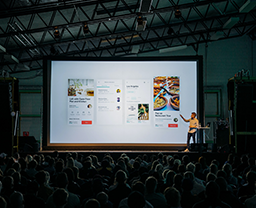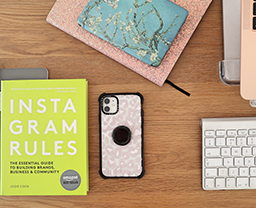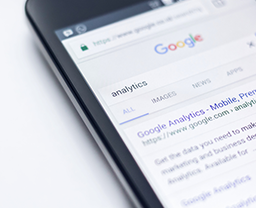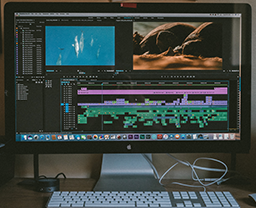
Digital Advertising

Display Advertising

Social Media Ads

Search Engine Marketing

Video Ads

Email Marketing
What Is Digital Advertising?
Digital advertising is creating, publishing, and promoting material through multiple online avenues, including social media, search engines (such as Google), websites, and any other program accessible through digital avenues. Considering how much time consumers spend using these online platforms, digital advertising gives you the opportunity to promote yourself exactly where your audience is. Each platform has its own positives and negatives, so ensuring that you are in the right place at the right time is paramount to success.
Key Developments In Digital Advertising
1994: The first banner ads appeared on websites, with companies like AT&T paying Hotwired $30,000 to place the banner ad above their site for three months. Don’t laugh. It had a click-through rate (CTR) of 44%.
1995: Display ads came into effect and were strategic with targeted ad placement. Agencies began helping clients identify websites where their customers were visiting, so the display ads were properly placed.
1996: Doubleclick emerged and was one of the first ROI tools to measure how many times ads were viewed and clicked through multiple websites.
1997: Pop-up ads rose to fame, but due to their distaste amongst the public, they fell just as fast, and by the 2000s, pop-up ads blockers were created.
1999: GoTo.com, which Yahoo would later buy out, introduced a pay-for-placement search engine service, which would evolve to pay-per-click.
2000: Google introduced AdWords as a whole new addition, which accounted for CTR to determine where the ad would be placed on top of how much money was spent.
2006: Facebook started using hyper-targeted digital ads on its site, which snowballed into other platforms such as Twitter, YouTube, Instagram, and more.
Types Of Digital Advertising
Display Advertising
These are banners, landing pages, flash ads or popups that can appear on websites or blogs. However, they will not show up on search results and are commonly seen as one of the most affordable to implement. You will find these everywhere on the internet and are not targeted to a specific audience but rather to a specific spot on a specific site.
Social Media Ads
These are a big hub for digital advertising considering the user-based and effortless audience targeting. You can see multiple types, including display, native, and video ads. You can either select paid, which will be native to you or use organic, which are dependent on word-of-mouth, such as utilizing influencers.
Search Engine Marketing
Dependable because of its keyword base. The two big types are pay-per-click (PPC) and search engine optimization (SEO). The most common platforms for this include Google, Bing, and Yahoo.
Video Ads
Although relatively self-explanatory, this is a video promoting your business or product or a how-to video. These can show up on YouTube, Facebook, or as native or display ads.
Email Marketing
Email marketing is a method of reaching people who are already interested in your business by getting the user to opt-in to the email list. These lists can be collected in a number of ways, but one of the most simple is using a pop-up email request and offering a discount or promotion in return.
How Does Digital Advertising Help My Business?
Every business needs an online presence to be successful. Digital advertising is an extension of this. In combination with your website, web applications, and SEO, digital advertising can help attract your consumers to your online stores so they can either window shop or purchase your products immediately. With wonderful tools such as segmentation for specific audience targeting, you can always place your ads where they will have the best return on investment.
How Does LT3 ATG Implement Digital Advertising?
At LT3 ATG, we will create custom digital advertisements that will deliver you the premium results you are looking for. By incorporating the appropriate graphics, aesthetics, and videography to catch your customer’s attention and increase the opportunity for you to purchase your products and service offerings. We will evaluate your current strategy and make changes that make sense for your current digital advertising or create a new one entirely. If you are interested in getting started, book your consultation today!
Digital Advertising
Tags (test)
Related Articles
No related articles at the moment
Related Projects
Check out our other projects →LT3 ATG
Ready to get started?
Building your vision starts with a conversation. We're always happy to chat.














